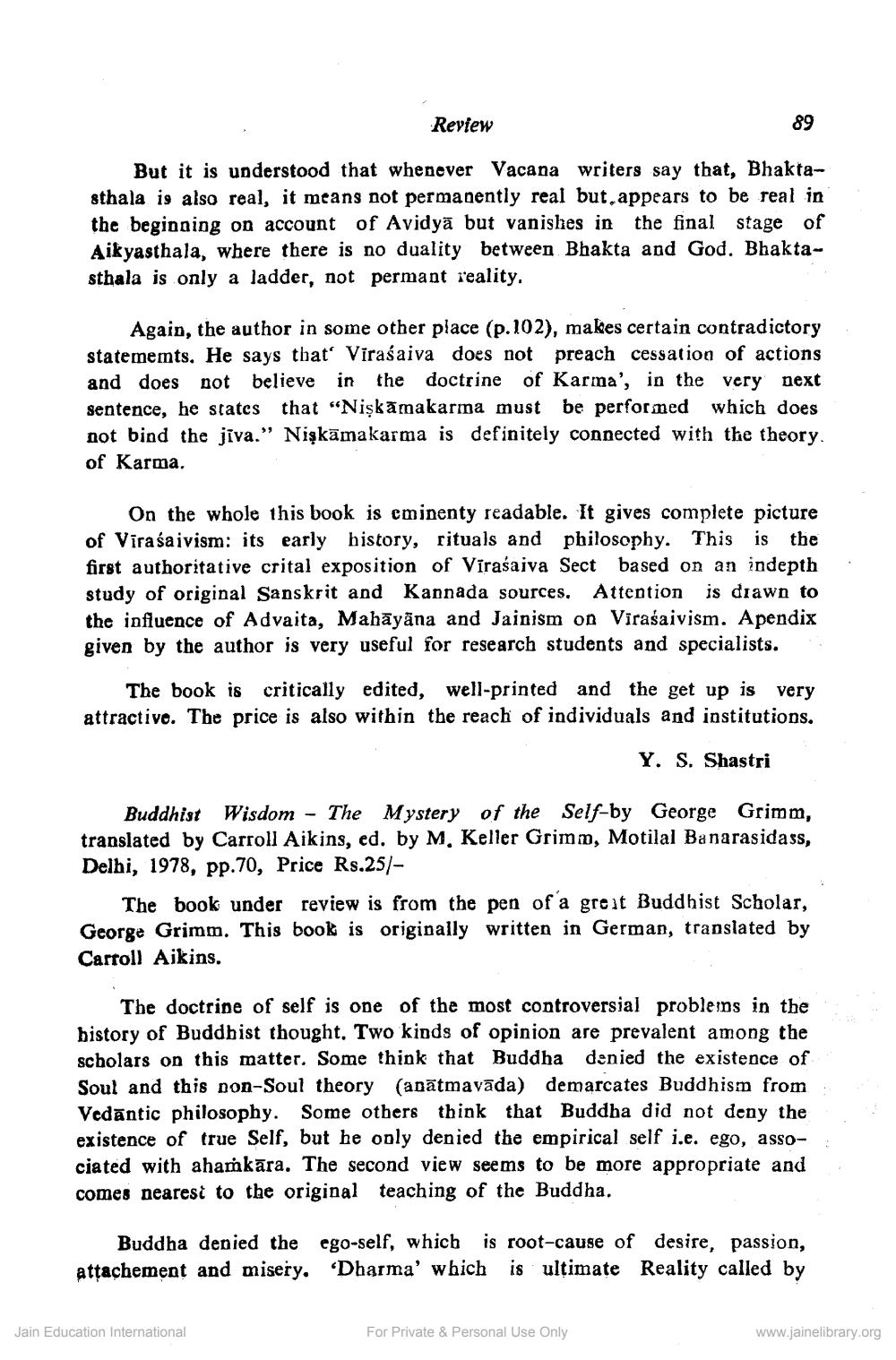________________
Review
89
But it is understood that whenever Vacana writers say that, Bhaktasthala is also real, it means not permanently real but appears to be real in the beginning on account of Avidyā but vanishes in the final stage of Aikyasthala, where there is no duality between Bhakta and God. Bhaktasthala is only a ladder, not permant reality.
Again, the author in some other place (p.102), makes certain contradictory statememts. He says that Virasaiva does not preach cessation of actions and does not believe in the doctrine of Karma', in the very next sentence, he states that "Niskāmakarma must be performed which does not bind the jiva." Nişkāmakarma is definitely connected with the theory. of Karma.
On the whole this book is eminenty readable. It gives complete picture of Virasaivism: its early history, rituals and philosophy. This is the first authoritative crital exposition of Virasaiva Sect based on an indepth study of original Sanskrit and Kannada sources. Attention is diawn to the influence of Advaita, Mahāyāna and Jainism on Virasaivism. Apendix given by the author is very useful for research students and specialists.
The book is critically edited, well-printed and the get up is very attractive. The price is also within the reach of individuals and institutions.
Y. S. Shastri
Buddhist Wisdom - The Mystery of the Self-by George Grimm, translated by Carroll Aikins, ed. by M, Keller Grimm, Motilal Banarasidass, Delhi, 1978, pp.70, Price Rs.25/
The book under review is from the pen of a great Buddhist Scholar, George Grimm. This book is originally written in German, translated by Carroll Aikins.
The doctrine of self is one of the most controversial probleins in the history of Buddhist thought. Two kinds of opinion are prevalent among the scholars on this matter. Some think that Buddha denied the existence of Soul and this non-Soul theory (anātmavāda) demarcates Buddhism from Vedāntic philosophy. Some others think that Buddha did not deny existence of true Self, but he only denied the empirical self i.e. ego, associated with ahamkāra. The second view seems to be more appropriate and comes nearesc to the original teaching of the Buddha.
Buddha denied the ego-self, which is root-cause of desire, passion, attachement and misery. 'Dharma' which is ultimate Reality called by
Jain Education International
For Private & Personal Use Only
www.jainelibrary.org




